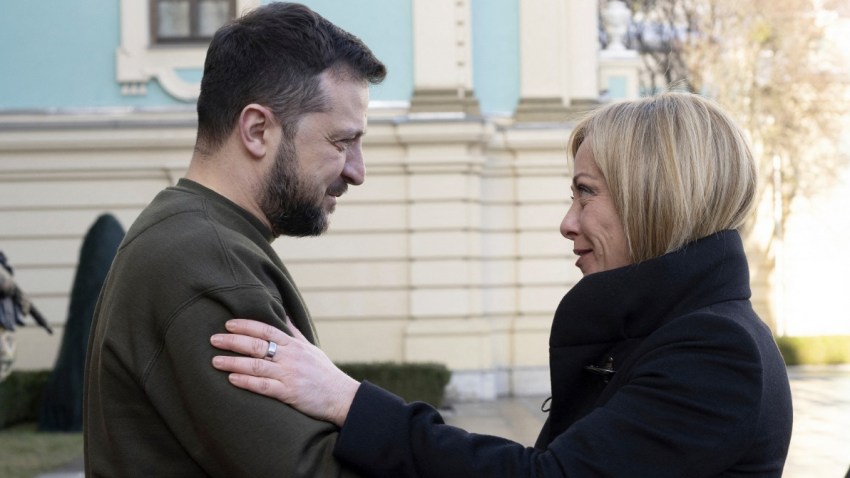Since she took office last October as Italy’s prime minister, Giorgia Meloni has largely chosen caution over confrontation in Rome’s foreign policy, adopting many of the same approaches as her highly regarded predecessor, Mario Draghi. But when it comes to Italy’s position on the war in Ukraine, and by extension its bilateral relationship with Russia, her administration’s emphasis on continuity seems to be diverging from domestic public opinion.
Ahead of Italy’s general election in September 2022, the prospect of Meloni’s far-right Brothers of Italy party being in a position to form a government with its right-wing allies spooked many observers on both sides of the Atlantic. Those fears were driven by Meloni’s well-documented Euroskepticism as well as the pro-Russia sentiments expressed by other right-wing Italian figures, like former Prime Minister Silvio Berlusconi and former Interior Minister Matteo Salvini, whose parties she was expected to partner with in order to form a government. The widespread concern was that a Meloni-led government in Rome would weaken European solidarity and the Western alliance’s stronger-than-expected response to Russia’s invasion of Ukraine in February 2022.
Those fears were well-founded, as Salvini—who currently serves as minister of infrastructure and transportation—has been an outspoken opponent of Western sanctions imposed on Russia since 2014, over the annexation of Crimea. Salvini argued that the measures have had a devastating impact on the Italian economy and hurt the fortunes of small and medium-sized enterprises in northern Italy, his home region. His party, the League, established a formal cooperation agreement with Russian President Vladimir Putin’s ruling United Russia party in 2017. That relationship has raised several eyebrows over the years and was at the center of a scandal in 2019, in which Moscow allegedly steered funding to the League during the campaign for European Parliament elections held that year. For his part, Berlusconi, who is a longtime friend of Putin, recently blamed Ukrainian President Volodymyr Zelenskyy for the war in Ukraine.

